Best Mulches To Use In The Vegetable Garden
Gardening is a great way to help provide your family with quality food as local as it gets but there are some challenges to gardening that take a little creativity.
One such creative way to solve a few common garden problems like weeds and your soil drying too fast in the summer is mulch.
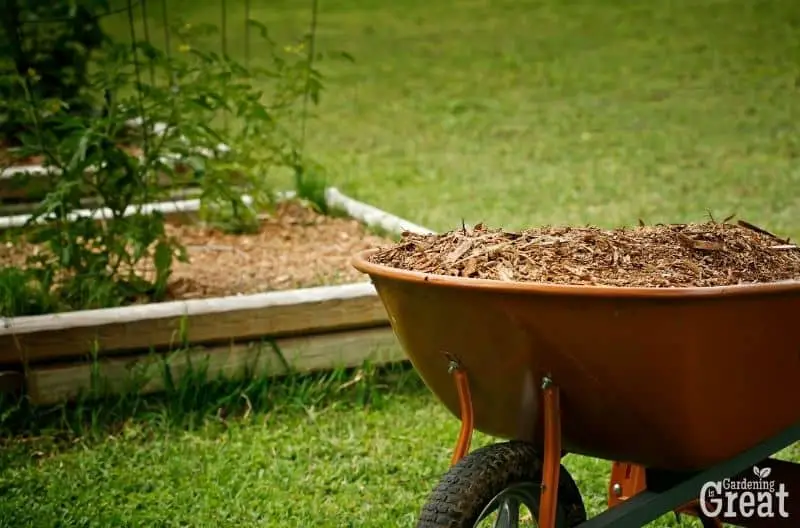
What is Mulch and Why Should I Use it in My Vegetable Garden?
Mulch is a layer of material placed over the soil. In your garden, natural, organic mulch is best, and adding mulch to your garden has many great benefits.
Mulch helps to protect your plants in the summer. This can be one of the biggest moves you can make to help your plants survive the hot summer sun. Mulch helps to trap moisture in your soil to prevent evaporation.
Mulch also helps to add an element of shade from the hot beating sun. This can be a great way to help ensure that your plants do not overheat and dry out. A thick layer of mulch should always be part of your summer garden.
Mulch can help extend your gardening season into the cooler months. Mulch will help keep your plant’s roots warmer longer. You should still cover your plants when frost is expected but with a thick layer of mulch, your vegetable garden should get an extra couple of weeks of production.
Mulch helps to improve your overall soil quality. Organic-based mulch like straw and wood break down and add nutrients to your soil. These are hard to remove at the end of each season for tilling your vegetable garden beds, but tilling the old-aged mulch into the soil helps improve drainage, nutrition, and aeration of your soil. Soil that has had the previous years mulch tilled into it is better for plants.
Mulch can help with weed control. Layering mulch is a great way to keep weeds out of your garden. Even better, any weeds that germinate on the top of the mulch are very easy to simply pull out of the garden without much effort.
Use mulch in your garden for pest control. Adding mulch to your garden can help make it easier to protect your plants from pests. Unwanted insects that lay eggs in the soil will often move away from your vegetable garden when the mulch makes it hard to get to the soil. Many wood mulches are made of hardwood that holds a natural fragrance that repels unwanted insects as well to help with pest control.
The Best Mulch Options to Use in Your Vegetable Garden
Straw
Straw is one of your best options to use in your vegetable garden for mulch. This has been dried and usually contains a low number of seeds from weeds that will need to be pulled later on.
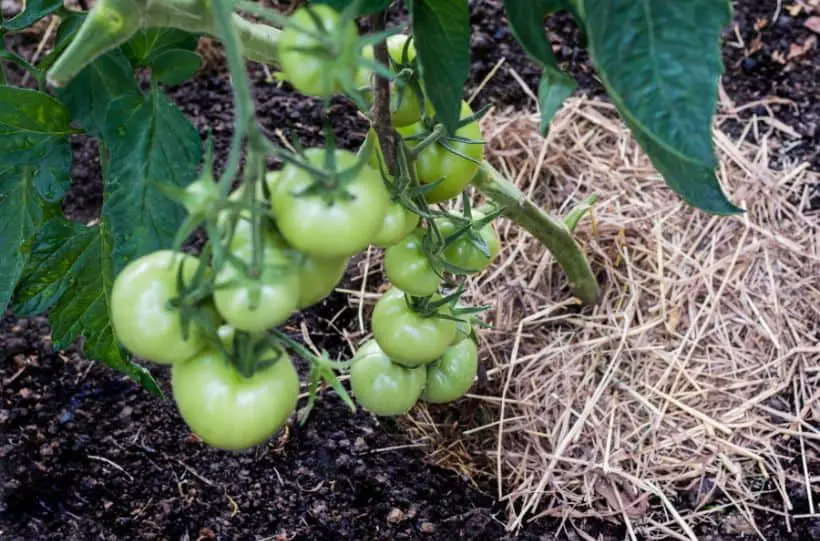
Straw is usually affordable and easy to add a thick layer of much on a budget. This can even be used as an underlayer for more decorative mulch to help lower the general cost.
Grass Clippings
Grass clippings are a great way to utilize what you already have in your yard. This is a very frugal way to mulch your vegetable garden and enjoy all of the benefits of mulch. Even better, you can keep adding to the layers over the summer.
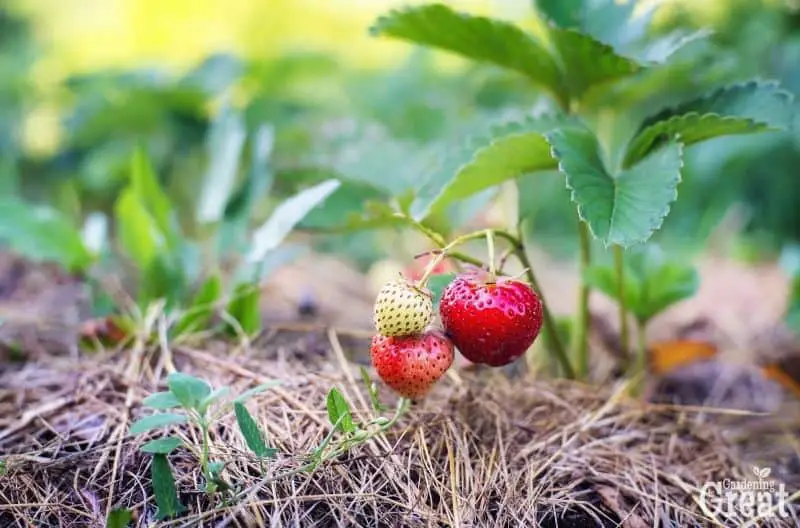
This may contain seeds from weeds you have cut down with your grass but if you stay on top of weeding and mow your lawn before most go to seed you can keep weeding to a minimum in your garden. If you do not want to keep layering mulch over the summer you can opt to use this as a layer under a more decorative wood mulch.
Hardwood Mulch
Hardwood mulch is a great option for your garden and can help make your vegetable garden look great. If you are growing vegetables right in your landscaping this is the best option.
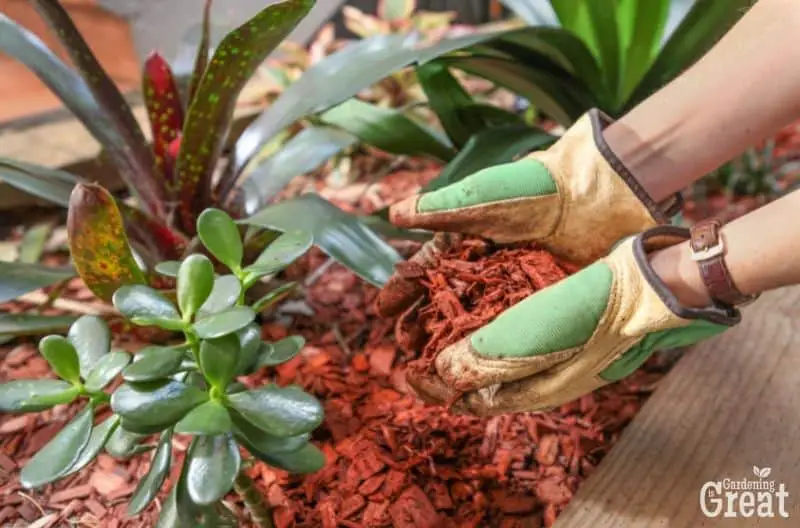
For the best wood mulch for your vegetable garden opt to use cedar that has not been treated with colorant. This will keep the colorants out of your vegetable garden and ultimately your food while allowing the natural oils in the cedar wood to be a part of your insect control plan.
Pine Needles
Pine needles are a great option for mulching your vegetable garden. These are more acidic than other options but can be a great mulch for acid-loving plants like blueberries and tomatoes.
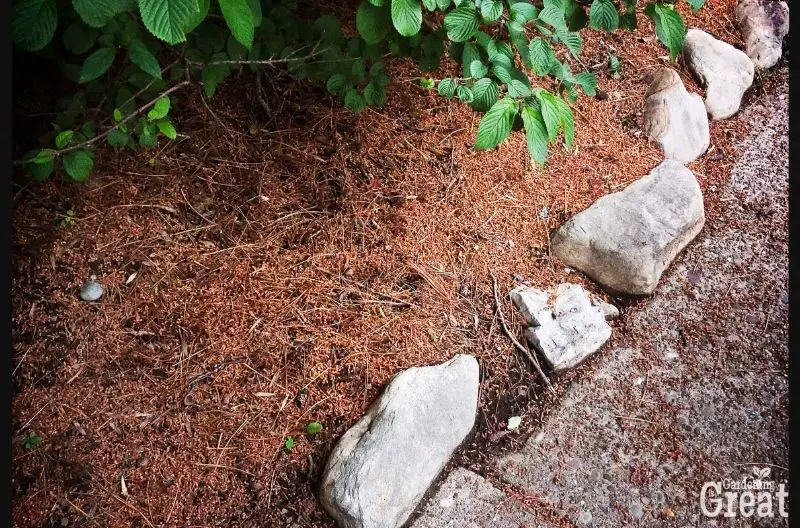
This is a great way to use pine needles you happen to have on your property to help your plants thrive.
Leaves
Leaves are a great way to mulch your garden in the fall. Adding fallen leaves to your garden beds in the fall to help protect your perennial plants is a great way to make the most of this natural resource for your garden.
In the fall as the leaves come down you can add them to your fall garden beds to protect the base and roots of your plants to help extend your fall gardening season.
In the spring simply till the leaves into your garden bed to add nutrition and improve your garden soil.
Newspaper or Cardboard
Newspaper or cardboard boxes are a great option for mulching your vegetable garden if you find yourself with a weed problem. These will lay out over your open spaces without disturbing your established plants.
You can simply layer this around your plants to completely block out weeds. This will eventually break down and make a great underlayer for other mulch options. Be sure to remove anything that won’t break down like staples, glue spots, and tape.
Living Mulch
Living mulch is a great way to maximize your garden space. Living mulch is the act of using plants that stay on the ground and provide ground cover in place or along with traditional mulches.
This method is a great way to ensure that your garden is well cared for and to make the most of every inch.

